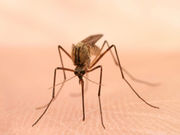Analysis of outbreak on Reunion Island finds higher-than-expected rate of encephalitis
TUESDAY, Dec. 1, 2015 (HealthDay News) — A 2005 to 2006 chikungunya outbreak on Reunion Island, east of Madagascar in the Indian Ocean, affected more than 300,000 people, with a higher-than-expected rate of encephalitis, researchers report online Nov. 25 in Neurology.
Researchers identified people who developed central nervous system disease as a result of their chikungunya infection. The patients were followed to see if they were still affected three years later.
Fifty-seven patients were affected by diseases of the central nervous system due to the Reunion Island chikungunya outbreak, including 24 who developed encephalitis. The overall incidence rate for chikungunya-associated encephalitis was 8.6 cases per 100,000 people. The young and old were particularly susceptible to chikungunya-associated encephalitis. The incidence rate in infants was 187 per 100,000 children younger than 1 year, and 37 per 100,000 in people over age 65. Nearly 17 percent of the chikungunya encephalitis patients died, and up to 45 percent of children developed long-term disabilities from their brain inflammation.
“These numbers are both much higher than the rates of encephalitis in the United States in these age categories, even when you add together all the causes of encephalitis,” lead author Patrick Gerardin, M.D., Ph.D., a pediatrician and epidemiologist with Central University Hospital in Saint Pierre on Reunion Island, said in a journal news release.
Copyright © 2015 HealthDay. All rights reserved.








